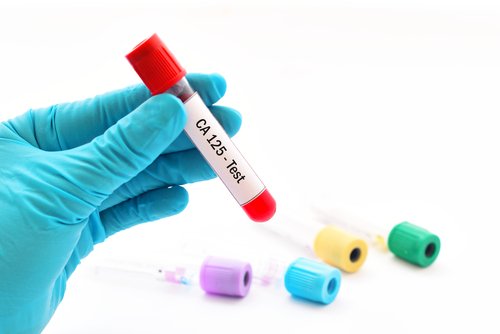The protein CA125, which is commonly expressed on the surface of ovarian cancer cells and is secreted into the bloodstream, was found to block the activity of investigational drug farletuzumab. Farletuzumab is currently in clinical development for the treatment of ovarian cancer.
This process was described in the preclinical study, “Tumor antigen CA125 suppresses antibody-dependent cellular cytotoxicity (ADCC) via direct antibody binding and suppressed Fc receptor engagement,” published in the journal Oncotarget, according to a statement from the therapy’s developer.
Farletuzumab, also known as MORAb-003, is an antibody developed by Eisai subsidiary Morphotek to specifically target the folate receptor alpha (FRA), which is almost entirely absent in normal cells but highly expressed in several cancers, including ovarian, endometrial, and breast cancers. After binding to the target cells by their FRA receptor, farletuzumab then activates immune cells to recognize and kill cancer cells.
In a Phase 3 clinical trial (NCT00849667), researchers tested the safety and effectiveness of weekly farletuzumab infusions combined with standard platinum-based chemotherapy — Paraplatin (carboplatin) plus a taxane — to treat relapsed platinum-sensitive ovarian cancer patients.
A total of 1,100 patients were included in the trial and received standard chemotherapy with 1.25 mg/kg or 2.5 mg/kg of farletuzumab, or a placebo. However, none of the farletuzumab dosages achieved the primary intended outcome of progression-free survival (PFS) when compared to the placebo, and no differences were observed in survival between groups.
Despite the discouraging results, researchers found that 290 patients with low baseline levels of CA125 had better PFS and overall survival when treated with farletuzumab 2.5 mg/kg, as compared to a placebo. The results of this subgroup analysis suggested that CA125 protein could negatively affect farletuzumab’s therapeutic potential.
A new preclinical study showed that CA125 can bind directly to the investigational drug. While this did not affect the ability of farletuzumab to target cancer cells, it blocked its ability to activate the immune system, a development that could explain the clinical outcomes observed in the Phase 3 trial.
Based on the subgroup analyses and current understanding of the interaction between CA125 and farletuzumab, a Phase 2 trial (NCT02289950) will further explore farletuzumab’s therapeutic potential and safety profile in combination with chemotherapy in first-relapsed, platinum-sensitive ovarian cancer patients with low CA125 blood levels.
Morphotek expects to enroll up to 210 patients across several centers in the United States, Japan, and Europe for this clinical trial.

